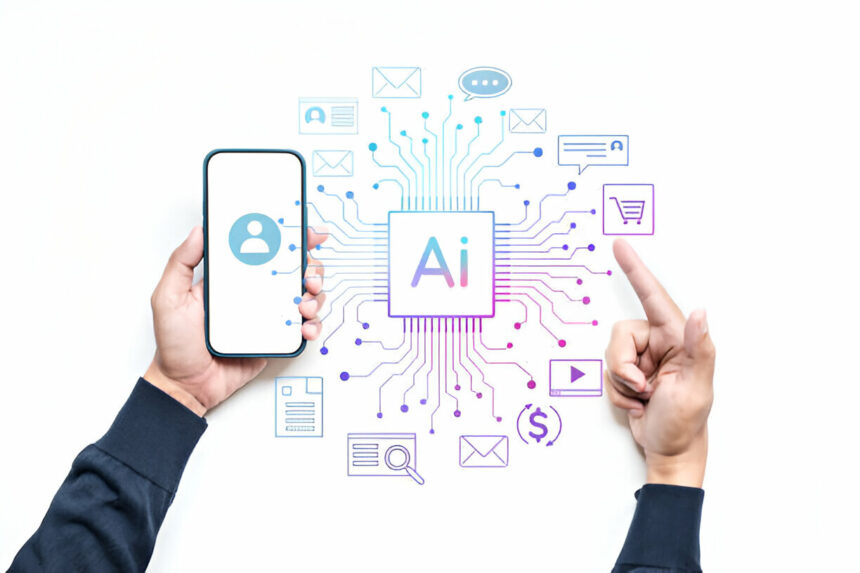Introduction
Generative AI in digital marketing changing the world. With its ability to create content, personalize customer interactions, and optimize campaigns. It has become a necessary tool for marketers. But what exactly is Generative AI, and how is it transforming digital marketing? Let’s understand it deeply.
What is Generative AI?
Generative AI refers to AI technologies that can generate new, original content. Whether that be text, images, or even music. Unlike traditional AI, which analyzes and learns from existing data, Generative AI creates new data based on learned patterns and structures. Historically, AI development focused on classification and prediction, but Generative AI marks a significant leap forward, enabling machines to produce original, creative outputs.
Applications of Generative AI in Digital Marketing
Content Generation
One of the most exciting applications of Generative AI in digital marketing is content generation.
Blogs and Articles:
AI tools like GPT-4 can draft comprehensive articles and blog posts, making it easier for marketers to maintain a steady stream of content. These AI-generated pieces can be tailored to specific topics, ensuring relevance and engagement.
Social Media Posts:
Generative AI can also craft compelling social media content. It can suggest captions, create posts, and even generate hashtags that align with current trends, helping brands maintain an active and appealing online presence.
Product Descriptions:
By automating the creation of detailed and engaging product descriptions, Generative AI ensures consistency and saves time, allowing marketers to focus on other strategic tasks.
Personalization
Tailored Content:
With the ability to analyze vast amounts of data, Generative AI in digital marketing helped marketers create tailored content for individual users based on their behaviors, preferences, and previous interactions. This personalized approach enhances user engagement and can lead to improved conversion rates.
Enhanced User Engagement:
By delivering personalized experiences, AI helps in creating deeper connections with customers, making them feel valued and understood.
Data Analysis
Consumer Behavior Insights:
AI’s capabilities extend to interpreting complex data sets, drawing meaningful insights, and predicting consumer behavior. These insights can guide the creation of more effective marketing strategies.
Strategic Guidance:
The ability of AI to analyze data quickly and accurately helps marketers make informed decisions, improving the overall effectiveness of their campaigns.
Design Generation
Visual Content:
Generative AI isn’t limited to text. It can also create visual content, such as banner ads, social media graphics, and even website layouts, thereby speeding up the design process and enabling more extensive A/B testing.
A/B Testing:
This can also automate A/B testing by creating multiple versions of ads and determining which performs best. This data-driven approach ensures more effective ad spending and higher returns on investment.
Customer Interactions
Chatbots:
AI can handle customer inquiries via chatbots, social media, and even over the phone. It can provide instant, personalized responses, improving the customer experience and freeing up human staff for more complex tasks.
Automated Responses:
Generative AI can handle repetitive tasks, such as responding to common queries, allowing human employees to focus on more strategic activities.
Benefits of Generative AI in Digital Marketing
Increased Efficiency:
Generative AI automates many time-consuming tasks, allowing marketers to focus on strategy and creativity. This leads to faster content production and campaign execution.
Enhanced Creativity:
By generating new ideas and content, AI complements human creativity. It can suggest unique approaches and concepts that might not have been considered otherwise.
Personalization at Scale:
AI enables marketers to personalize content and campaigns at a scale that’s impossible for humans alone. This level of personalization improves customer engagement and loyalty.
Cost-Effectiveness:
Automating tasks with AI reduces the need for large teams, cutting costs while maintaining high productivity and quality.
Challenges and Limitations
Quality Control:
Ensuring the quality of AI-generated content can be challenging. While AI can produce impressive results, it still requires human oversight to ensure accuracy and relevance.
Ethical Considerations:
The use of AI raises ethical questions, particularly around data privacy and the potential for biased outputs. Marketers must navigate these issues carefully to maintain trust.
Dependence on Data Quality:
Generative AI’s effectiveness heavily depends on the quality of the data it is trained on. Poor data can lead to poor results, highlighting the need for robust data management practices.
Human Oversight Necessity:
Despite its capabilities, Generative AI should not operate in isolation. Human oversight is crucial to guide its outputs and ensure they align with brand values and goals.
Case Studies
Successful Use Cases in the Industry:
Companies like Netflix and Coca-Cola have successfully integrated Generative AI into their marketing strategies. Netflix uses AI to personalize recommendations and create custom promotional content, while Coca-Cola leverages AI to generate innovative ad campaigns.
Lessons Learned:
These case studies highlight the importance of combining AI with human creativity and oversight. They also underscore the need for a strategic approach to data management and ethical considerations.
Future of Generative AI in Digital Marketing
Emerging Trends:
The future of Generative AI in digital marketing looks promising, with advancements in natural language processing, computer vision, and deep learning driving its evolution. These technologies will enable even more sophisticated and personalized marketing strategies.
Potential Advancements: We can expect Generative AI to become more integrated with other technologies like augmented reality (AR) and virtual reality (VR), offering immersive and interactive
Conclusion
Generative AI in digital marketing transforming the world by automating content creation, personalizing campaigns, and optimizing ad performance. While it offers numerous benefits, it’s essential to address the challenges and limitations to harness its full potential. By integrating Generative AI thoughtfully and strategically, marketers can drive innovation and achieve remarkable results.
FAQs
Q: What is Generative AI?
Ana: Generative AI refers to algorithms that create new content based on learned patterns from existing data, producing text, images, and more.
Q: How can Generative AI improve content creation?
Ans: Generative AI can automate the creation of articles, social media posts, and ad copy, ensuring relevance and engagement while saving time and resources.
Q: Are there any risks associated with using Generative AI?
Ans: Yes, risks include potential quality control issues, ethical concerns, and dependence on data quality. Human oversight is crucial to mitigate these risks.
Q: What tools are available for implementing Generative AI?
Ans: Tools like OpenAI GPT-4 for text generation, DALL-E for image creation, Adobe Sensei for creative automation, and HubSpot for marketing automation are widely used.
Q: How will Generative AI evolve in the future?
Ans: Generative AI will continue to advance, integrating with AR/VR for immersive experiences and improving natural language processing and deep learning for more human-like content generation.





